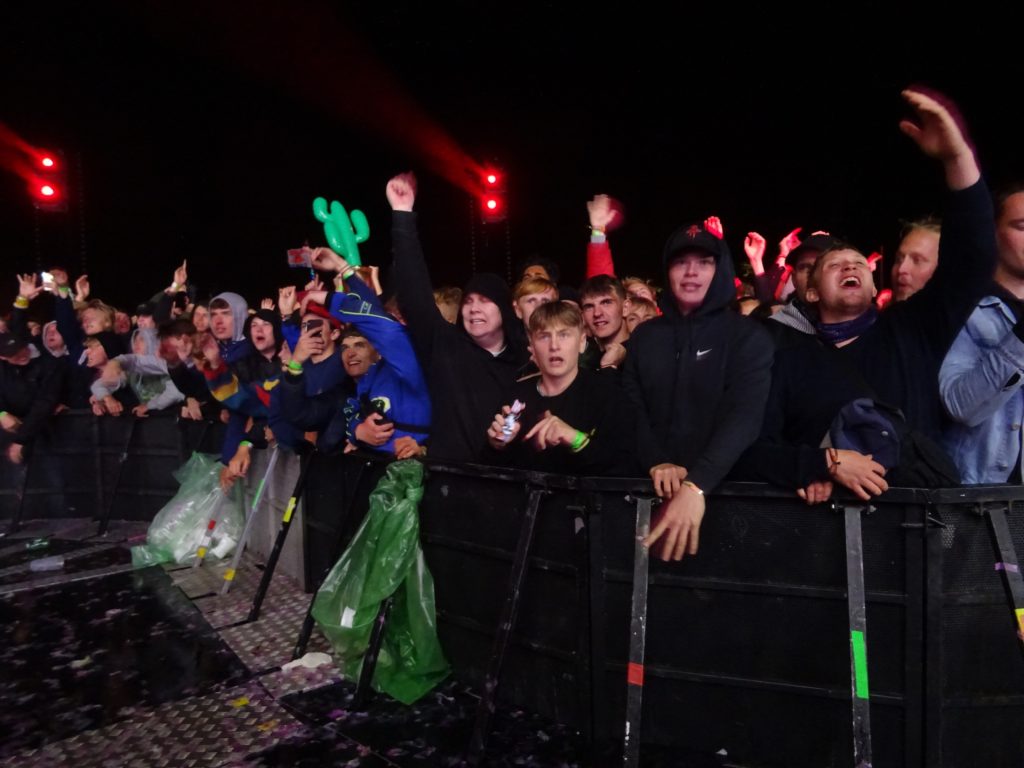
Targeting the wrong source of the problem won’t help anyone…
Last week we witnessed a media storm when fans at North London’s Wireless festival raised concerns about overcrowding and safety after a huge turnout to see rap duo D-Block Europe. Two fans were even filmed climbing a tree trying to escape the crowds quickly forming around the smaller of the two stages at the Finsbury Park music event.
With a 40 year history of working in events and crowd management, I was pleased to be asked by BBC London to comment on what had happened… but this feeling quickly turned to disappointment when they took the editorial decision not to air my comments…
The interview started with me being asked what I thought about the number of security present in the video. My answer was that if you looked closely there were a number of security, but the video only gave a snapshot of the area and not the full story. I was also asked what I thought about the person being put in a headlock by a steward, however, from my view it looked like the stewards were trying to help people in a difficult situation and I could not see the supposed incident.
The main point I wanted to make was that the security and crowd management teams are always the first to be targeted when an incident occurs – because they are visible, people can see them, and it makes them an easy scapegoat. In my work on rail stations people report feeling safe because there are stewards and police present; yet, ironically, if something goes wrong those same people are also the first to be blamed.
I also pointed out to BBC London that the type of crowd and the artist appearing can also have just as much of an influence on the challenges because much of what we see today is people at events who have no concept of danger, are not interested in the safety of others and the artists misappropriate cultural signifiers from other genres in their own shows, leaving the audience with no idea of how to behave. I have seen this many times this month where rap bands are using wall of death and circle dancing, but the crowd, unlike the genres where these behaviours come from, don’t have any control or support mechanisms. This is becoming more and more prevalent at events and is causing many of the challenges that event professionals are faced with.
The key point here is for the media to stop sensationalizing an issue by pointing the finger at the wrong source. By continuing to do this they will inadvertently make people frightened to go to events for the wrong reasons. Just think how many safe events there are in a year, and those with issues are only a very small proportion. The press needs to butt out and really think about what they are trying to achieve rather than create a witch hunt against certain parts of the event structure.
If it is of interest, Mind Over Matter Consultancy delivers a range of interactive, highly-pressurized programmes for high performers in companies across the world, underpinned by applied leadership and management theory. These are lead by experts in their fields.
We are able to support the following areas:
- Communication
- Leadership
- Negotiation
- Talent Identification
- Decision Making
- Motivation
- Problem Solving
- Teamwork
Try our bespoke #BlowYouAwayDays programmes where you and your team will be pushed to the limit in anything from RNLI training or kidnap scenarios to dance development, a rollercoaster crash, a grand prix circuit or the SAS.
